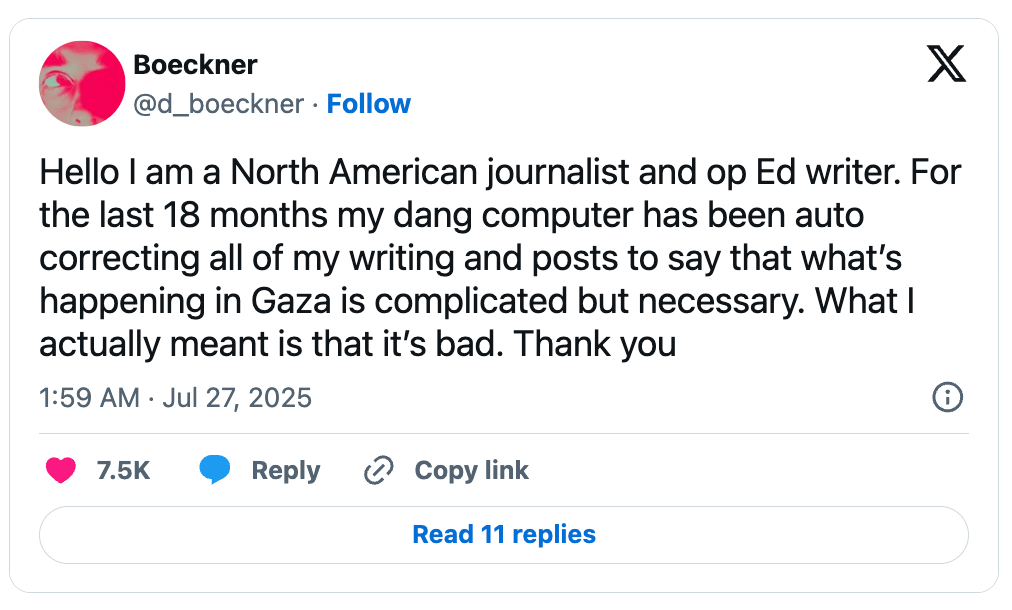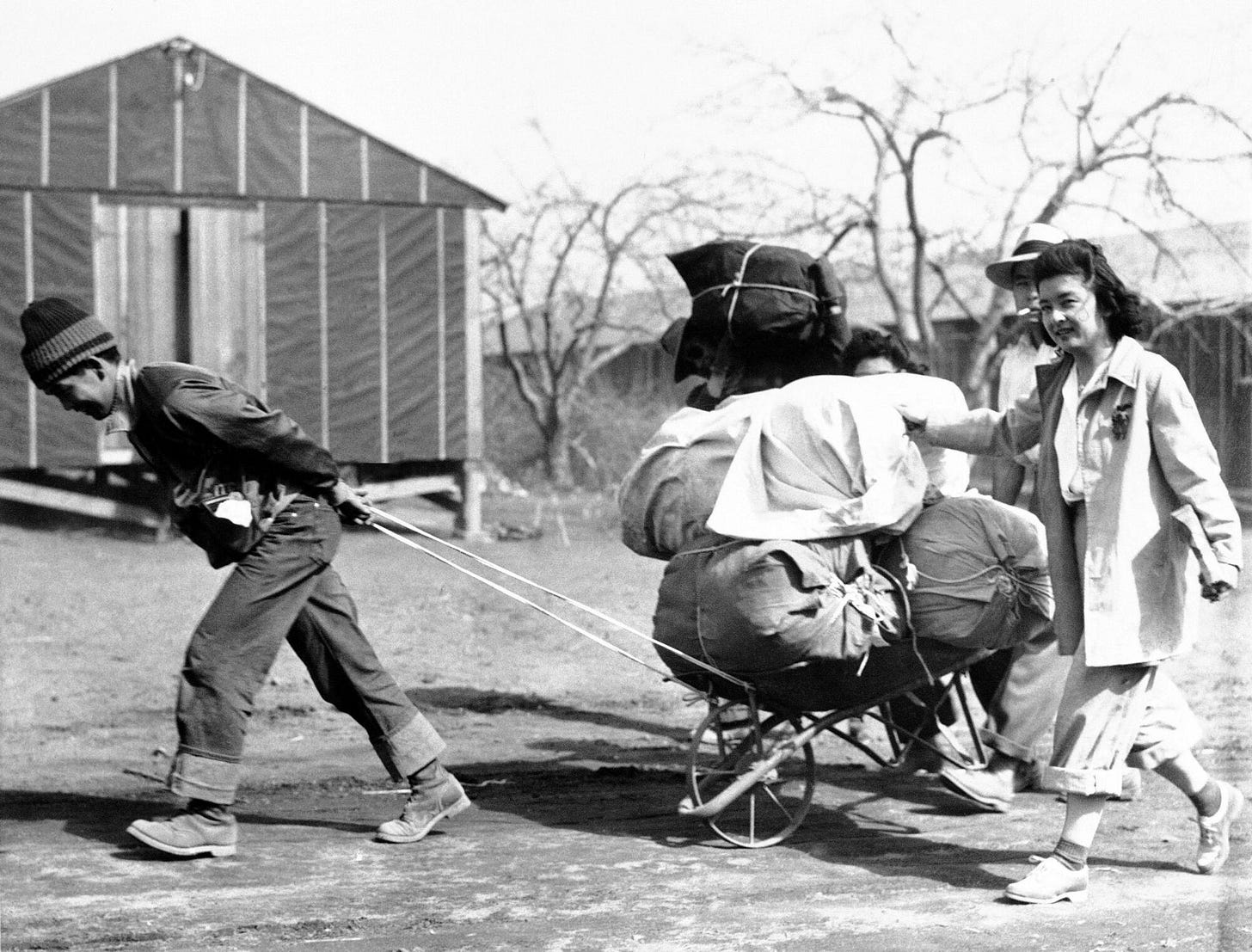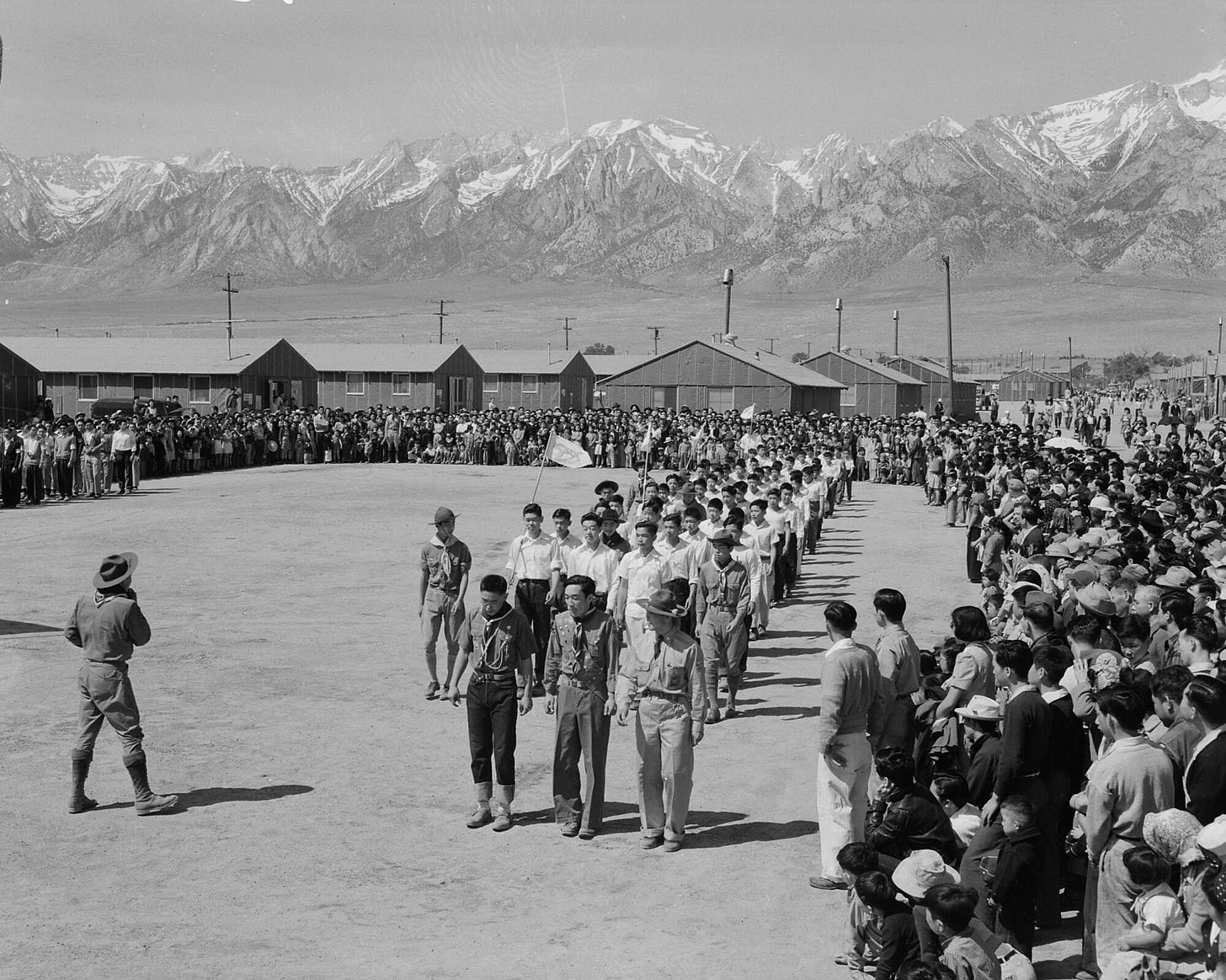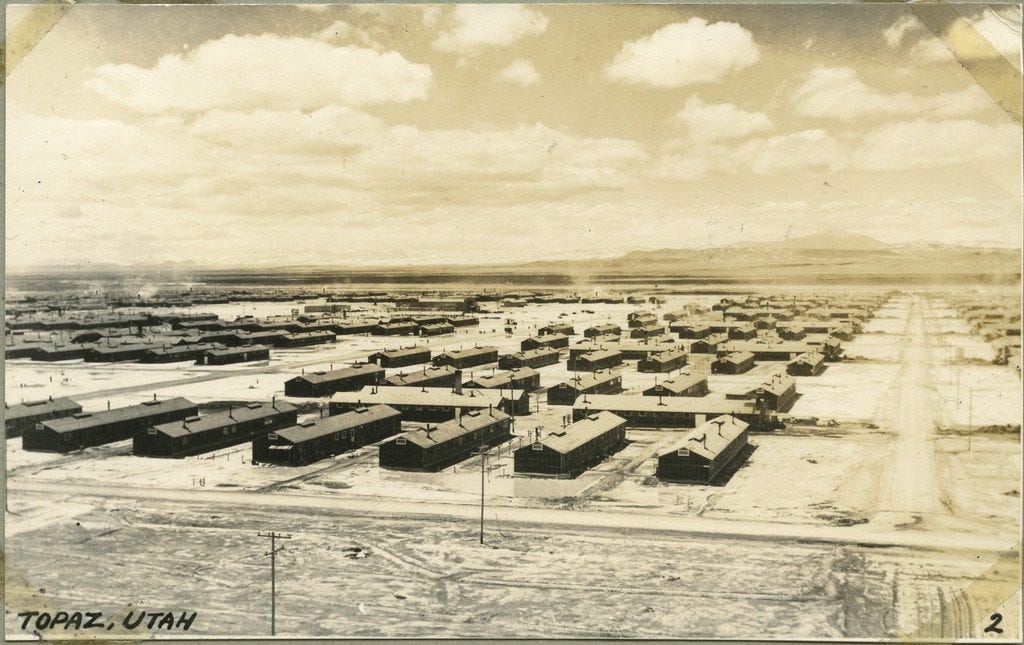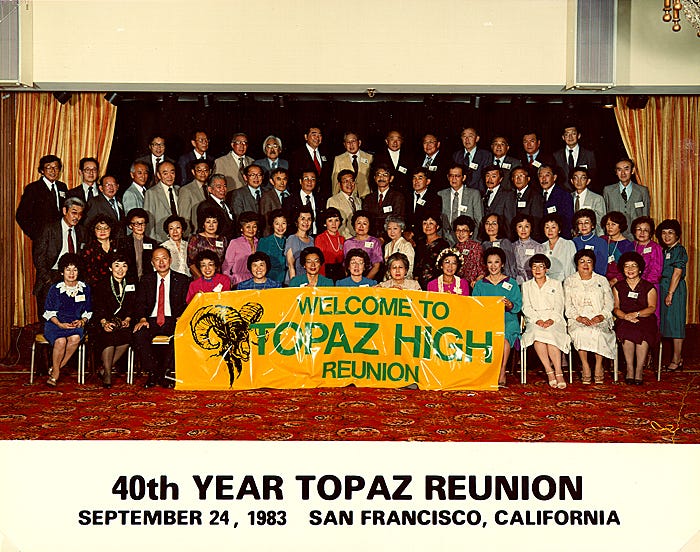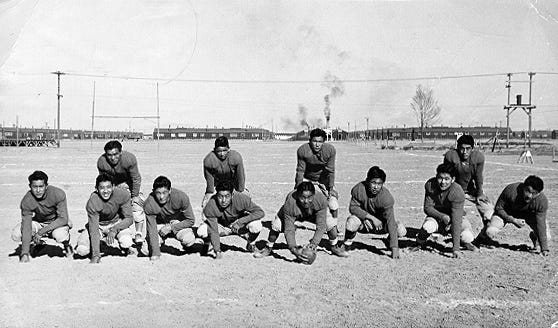We live in interesting but brutal times. It is evident that myths are biting the dust with long held narratives dissolving when exposed to the harsh and bloody reality. Nowhere is this more evident than with all the myths that propped up Israel for many decades. Israel was portrayed as a fragile yet resilient little country living in a “bad neighbourhood.” But now, given Israel’s incessant wars, much of this mythology is being jettisoned; it is no longer needed when arrogance, hubris and sadism drive the Israeli ethos. The image of the little David is giving way to a vengeful genocidal creature infused with a dash of the Old Testament….
Below is a discussion of some of the collapsing myths. Myths are built on narratives which in turn are built on descriptive words. Much of the discussion centres around clarifying the deceptive nature of words, which in turn will expose the false narratives.
Rabble really
The army is venerated in Israel, and a lot of effort is put into glorifying the military; there are festivals with singers, balloons, and blue and white pom-poms galore. American Jewish girls go giddy when meeting the tanned and smiling soldiers. Of course, if one glorifies the military, then all the units can only be “élite”; even the lowliest soldier is given a sergeant rank; and of course they must be “the most moral ” in the world. It is also known by its incongruous acronym: IDF.
Contrast the glamorous image of the Israeli military with its actions in Gaza, West Bank and beyond. Israeli snipers are targeting children – extra-points for pregnant women (you can even purchase a T-shirt with “one shot, two kills ” logo on it). Soldiers are cheering when blowing up hospitals, universities, mosques, schools,…. it is no secret, it is all visible in Telegram videos or on Al_Jazeera’s newscasts. To make matters worse, GHF, the so-called Israeli “humanitarian ” group, dispenses food and water in Gaza today in such a way as to concentrate refugees, and then target them. Soldiers are looting everywhere, and even one unit has been set up with the express intention of looting areas they’ve conquered. Looting is tolerated throughout, and even made part of its tactics on the ground.
The Israeli military is engaged in genocide and doesn’t hide the fact. Groups of soldiers engaged in ecstatic dancing chanting “death to the Amalek ” – a biblical term for the one to be killed en masse; including women and children. Early in October 2023, the Israeli military put a 95-year-old veteran of the infamous 1948 massacres on tour to lecture the soldiers. Dressed in a military uniform, he engaged in some motivational speeches: “Be triumphant and finish them off and don’t leave anyone behind. Erase the memory of them. Erase them, their families, mothers and children. These animals can no longer live.” The pronouncements made by the military official rabbis are even worse. And one cannot forget (former Minister of Defence) Yoav Gallant’s statement: “I have ordered a complete siege on the Gaza Strip. There will be no electricity, no food, no fuel, everything is closed. We are fighting human animals and we are acting accordingly.”
The Israeli airforce regularly drops huge bombs in the middle of densely populated refugee camps. According to Euromed, the total number of bombs dropped on Gaza are equivalent to all the bombs dropped on several of the major cities during WWII. And in order not to waste bombs, Israeli warplanes which couldn’t drop their ordnance in Iran during the June 2025 attack were instructed to bomb Gaza. Israelis also never miss an opportunity to profit from such events; Israelis flock to the border area to sit on sofas to witness the bombing spectacle. These war tourists have to pay extra for a cappuccino.
Israeli sadism only escalates; everyday there must be a new turn of the screw – it is not satisfied with merely bombing or shooting civilians. The latest Israeli military order is that from now on Palestinians will not be allowed to bathe in the sea. Israeli snipers, warships… will target civilians entering the sea. One Telegram video shows a gleeful Israeli soldier using mortar bombs to target civilians sitting on a beach.
The Israeli military used to be well organised and soldiers operated on the basis of strict orders. Today, the ethical rot has set in at all levels. Officers and lower soldiers alike murder, steal, torture everywhere. Soldiers perpetrate heinous crimes in full camera view, yet the perpetrators expect full impunity.
Simply put: the Israeli military can no longer be referred to as an army, but it must be described for what it actually is: a criminal rabble.
Israeli way of war
Israelis like to say that they “live in a bad neighbourhood.” In fact, it is so bad that Israel has bombed most of its neighbouring countries numerous times and attempted to murder most of the leadership in those countries. “Decapitation strikes” are deemed a great success and yet another proof of the Israeli cunning and prowess. Another target are the potential or actual negotiators. The Israeli military has murdered several negotiators in Lebanon, Gaza, Tehran (Ismael Haniyeh), and during the June 2025 attack against Iran the lead negotiator with the Americans was also murdered. And then Israel declares “ceasefires ” that impose conditions on the victims, but Israel continues to murder and bomb – there have been over 1,000 violations of the so-called ceasefire in Lebanon. Drones and warplanes fly overhead without regard to any declared ceasefire. Maybe all this is not surprising given the official Israeli (especially Netanyahu’s) disdain for “peace” which is considered to be a dirty word; they prefer “conflict management.” Ceasefires are merely meant to provide time for the Israeli military to reorganise and then bomb and murder in their “business as usual” fashion.
The Israeli military’s brutality even gets pompous sounding names like the Dahiya Doctrine. This refers to the levelling of the Dahiya neighbourhood in Beirut 2006 – it is a disproportionate level of violence “in response” to Hezbollah daring to resist the Israeli attack. And of course, Israelis justify this by seeking to reestablish “deterrence” which is yet another fraudulent military concept. But then the Israeli military applies other fraudulent and morally reprehensible doctrines, e.g., the Hannibal directive. This directive orders the Israeli military to kill Israeli Jews who may have been captured by Palestinians or other enemies. Officials prefer to kill Israelis rather than to have them taken as hostages. In fact, about half of the Israeli civilians killed on 7 October 2023 were killed by the Israeli military.
The Israeli military justifies its actions because it is “at war.” The resistance in Gaza has no tanks, airplanes, etc. Thus the best equipped army in the world is attacking a mostly defenceless population; maybe it is a bit of a stretch to call this a “war.” Norman Finkelstein, the great historian, once made the same point and suggested that the Israeli “mowing the lawn ” attacks should be referred to as “massacres.” That is a rather more accurate and succinct descriptor; in the current historical context “genocidal actions” is perhaps more accurate.
Squatters really
A mythology surrounding the early Israeli colonists became pervasive early on. The brave sun tanned pioneers were “making the desert bloom” conveying the notion that they were just taking over empty and unproductive land. The word that went along with this myth was that the Jewish interlopers were “settlers ” – another rather neutral word that has no association with the native population they came to displace. For some time while communal living had romantic appeal, settlers lived in kibbutzim. Young Europeans would flock to experience this only to find out a less glamorous picture often involving corruption and sexual abuse.
After the 1940s, the program of ethnic cleansing saw hundreds of Palestinian towns and villages razed to the ground or simply taken over. Many Israelis took over houses and even helped themselves to furniture, carpets, etc. The takeover of houses is an on-going project with zealot usurpers using advanced mapping technology to target houses, especially in East Jerusalem. While a Palestinian family is out of a house doing normal daily chores, they find upon their return that their house has been taken over, and it is impossible to eject the squatters because the police sides with the latter.
During the late 1960s and early 1970s saw a wave of land confiscation in the West Bank, and the building of “settlements ” on top of hills. The real zealots went to Al Khalil/Hebron to take over houses, hotels, and other buildings. They even set about closing off streets so they could go undisturbed to the Ibrahimi mosque which also had been usurped by the zealots. The zealots’ aim is to constantly steal houses, and to make the life of ordinary Palestinians intolerable.
Other settlements were built as suburbs of Jerusalem or as cities with all the amenities provided at subsidised rates. Purpose-built “apartheid” roads connected these developments to the main Israeli cities, but also were meant to sever the links between Palestinian communities. And although the residents of such places are portrayed as mere suburbanites, they often clash with Palestinians when they seek to annex more land. Although annexation is such a neutral word, it hides the violence dispensed by the suburbanites to achieve their aims. The Jews recently arrived from Venezuela sought to expand the borders of their development and requested the zealots to do the dirty violent work. The condition for this assistance was that new arrivals would also participate in the violent eviction and usurpation of the neighbouring Palestinian land. Even the “suburbanites ” participate in violence; the soldiers are on standby to protect the usurpers.
It is important to avoid propaganda-tainted language, and to use words that clearly describe a reality and associated power relationships. For this reason many words cry out for an alternative description. The word “settler” demands a more accurate substitution, and the word “squatter” would certainly be a more suitable and accurate descriptor. It is time to stop calling the armed violent young men who harass and brutalise Palestinians in the West Bank “settlers”!
Where has “proper” gone?
Israel always has been a country with flexible and expanding borders. Yet, when it suited them, they would make a distinction between “Israel proper” and the occupied areas. The implication was that there could be negotiations regarding the occupied areas, there couldn’t possibly be negotiations about anything in Israel proper – this was conceded land, and there was nothing to talk about. And the “proper” areas expanded! After the wars of 1948, 1967, 2006… the borders of Israel “proper” expanded to incorporate newly stolen land. What the current batch of wars have revealed is that there is no more talk about “Israel proper”, and the reason for that is that Israel is expanding at present – stealing land in Lebanon, Syria, Gaza and the West Bank. While the borders keep expanding, the “proper” hasn’t incorporated the newly usurped land.
A feature of the “Israel proper” concept is that Israel desires to have buffer zones or no-man’s land between its “recognised” borders and its neighbours. But the buffer zones have to be on Lebanese or Syrian soil; the buffer is never on the Israeli side. The Israeli military has created a no-man’s land on the border with Gaza, but all the bulldozed land and acreage sprayed with herbicide is on the Palestinian side of the military-imposed border. And if the UN feels that it needs to conduct some face-saving military patrols, then the UN can defend Israel by sitting in the Lebanese “buffer zone”; UNIFIL shouldn’t even dream of sitting right on the border or having its soldiers cross into Israel for some R&R.
Never again?
All western societies have been indoctrinated with holocaust mythology; one constant refrain has been “never again”. Fair enough. But if any lessons were learnt then this slogan should apply to all; it should read Never again for Everybody. The Gazan population certainly should not be the victim of genocide today – yet there is no doubt that that is exactly what is going on. A brief perusal of the so-called “holocaust studies centres” around the world reveal that they have been silent during this period – they are immersed in studying the 1940s; there seem to be no lessons for the current situation. One such centre features a large “Find memory; Find humanity” slogan on its website, yet (July 2025) has absolutely nothing to say about the genocide in Gaza. It is all about selective memory and humanity.
Pogroms were violent attacks against a religious or ethnic group in the Russian Empire and usually depicted as criminal in nature. Yet today young armed Israeli Jews regularly invade Palestinian villages and towns and brutalise or murder the native population. If violence was deemed intolerable in the past, then why the silence about the ongoing pogroms in the West Bank today?
Careful what you wish for
Several so-called influencers, the contemptible creatures appearing on TikTok/Instagram, etc., called for genocide in Gaza. One of the influencers went so far as to state that if there were a button to get rid of all the Palestinians, he would press the button.The calls for genocide are also commonly found at the podium of the Knesset. The wife of an Israeli soldier, hysterically shouted from podium not to let the sacrifice of her husband’s effort (having to work overtime) be wasted, and thus “don’t stop before…” the Israeli army exterminates all Palestinians.
Israeli society is rather warped, and it is constantly polled about all sorts of unusual issues. One of the recent questions was “are Palestinian children in Gaza innocent?” 75% of the respondents said “no.” In one motivational speech given to the soldiers about to invade Gaza, a high ranking officer also stated “the children are not innocent” – this follows Deuteronomy’s edict to kill the women and the children.
After the first hearing about Gaza was held at the ICJ (26 January 2024) at a demonstration in London, dozens of counter-demonstrators wearing Israeli flag capes were chanting “no ceasefire.” By this time several hospitals and universities had already been destroyed. Is this what the counter-demonstrators wished to continue?
Maybe a thought experiment will demonstrate the extreme hypocrisy of these influencers and counter-demonstrators. Imagine that a Palestinian influencer were to ask for a button get rid of all Israeli Jews, or that a Palestinian politician were to utter a similar statement. What do you think the reaction would be? The ultimate hypocrisy is for Jews who bow to the mere mention of the holocaust to call for genocide against Palestinians.
While the London police did nothing to suppress the counter-demonstrators yelling support for the genocide, they do actively suppress pro-Palestinian statements against the genocide! In a recent video, the police in Scotland are even tearing down Palestinian flags. And in the US, Trump is actually suppressing all protests and commentary against Israeli brutality by labelling it as antisemitism.
My holy vs. your holy
About one thousand mosques and several churches have been obliterated since 2023. Some of the mosques/churches were centuries old and could be deemed cultural heritage sites – of course, they didn’t receive a UNESCO label because Israel blocked such designations. The media tends to ignore the destruction of mosques or refers to Israeli justifications for their destruction. The few christian churches bombed in Gaza did elicit mention, and after the bombing of a Catholic church even Pope Leo XIV stated that “he was deeply saddened…” by the loss of life. What makes the Pope’s comment memorable is the fact that he didn’t mention that it was Israel that bombed the church. Anonymous bombs just seem to fall out of the sky.
While the intentional destruction of Palestinian holy sites or mosques doesn’t seem to merit any mention, when a synagogue is damaged this elicits a major outcry. But to highlight the double standard, the establishment of a synagogue, or purportedly finding a reference to a Tomb or mere place of sojourn by a well known rabbi, then Israeli Jews consider this to be a claim to the land. Thus an enterprising religious scholar found a reference to a Tomb of Rabbi Ashi in Lebanon, then this became a land claim. Israelis grab any justification to steal yet more land however flimsy the claim to the land may be.
Mind their comfort please
The many wars that Israel has waged recently have outraged many around the world giving rise to demonstrations and the like. Yet, the frequent media concern is with the “comfort ” of Jews witnessing the demonstrations! Although Israel is conducting a genocide, Jews should feel comfortable and not reminded of sordid events. Even a bake sale meant to raise funds for Gaza was deemed to interfere with Jewish comfort. Did white South Africans living in Europe object to anti-apartheid demonstrations on the basis that it made them feel uncomfortable? Fat chance! However, in the current context several governments have appointed “anti-semitism ambassadors ” who will work to ban demonstrations or manifestations of support for the Palestinians. Maybe a case can be made that supporters of the Israeli genocide in Gaza or the unprovoked attack against Iran should be made to feel uncomfortable.
Western values and Israel
Much is made of “western values” purportedly freedom of speech, association, respect for the rule of law, and respecting immigrants. These values are what makes Europe a “garden” and everywhere else a “jungle.” These values have also been used to justify the continued EU assistance to Ukraine, and thus war. Russia has invariably been castigated for not observing “western norms.” But, when it comes to genocidal Israel and its violent tendencies, the same insufferable politicians are silent or connive to send weapons and assistance to Israel.
Europe is meant to absorb huge migrant flows, yet Israel imposes a discriminatory migrant policy – only Jews need to apply. Israel’s incessant wars are creating migrant flows that inevitably end in Europe, and no European official seems willing to point this out. What we witness instead is that European officials travel to Egypt to offer enticements for Egypt to absorb Palestinian refugees; a few years ago the same gang offered several billion Euros to Erdogan to reduce the Syrian and Iraqi migrant flows.
Myopic history
Reading the mainstream media one would get the impression that Palestinian history started on 7 October 2023. Everything before that doesn’t seem to merit mentioning. All the “mowing the lawn” military operations aren’t a thing of the past, they are in a memory hole. The Goldstone report documenting the mass crimes committed in 2009 is also in the memory hole. Of course, it is too much to expect the mainstream media to even mention relevant history that goes back a few more years. The media don’t report on the caged nature of Gaza, surrounded by razor wire and watchtowers. And as Dov Weissglas, the advisor to Ariel Sharon, stated the residents of Gaza would be kept “on a diet” – that is, Israeli bureaucrats would calculate the minimum caloric intake needed to survive, and they would allow just this amount of aid to trickle into Gaza.
Watch our words!
While it is important to use accurate words to describe Israeli state policy, it is also important for pro-Palestinian activists to change the words they use to refer to the current reality. One finds that the word “occupation” is used often to describe the Israeli military, and even to the extent that it is used as a synonym. Similarly, the “apartheid” descriptor is used without much reflection, e.g., apartheid wall, apartheid roads, etc. Both occupation and apartheid indicate a co-existence with the native population. Apartheid meant coexisting economically, but living separately – there was an interaction between blacks and whites. The word occupation suggests that it is temporary, and that interaction is possible. But the genocide in Gaza indicates that Israel prefers erasing the Palestinians, and that way ending the occupation. The three strategists drawing up the path of the wall built in the West Bank were explicit about the temporary nature of the structure. It would remain in place to control the Palestinian population, but they foresaw that the wall will be removed once the Palestinian population has been expelled.
There is another problem with the word “apartheid.” While much effort was placed to declare that Israel was guilty of the “crime of apartheid,” it only referred to the “occupied territories.” The third class status of Palestinians living in Israel was unmentionable to those drawing up the legal case. Apartheid was deemed a crime on one side of the line, but just fine on the other side (in “Israel proper”).
Worse than 1960s apartheid in South Africa
The so-called West slowly adopted some sanctions and divestment of South Africa beginning in the 1970s; the public had engaged in some form of boycott of South African products before that. Ronnie Kasrils, the great anti-apartheid fighter and member of the African National Congress, stated that the situation now for the Palestinians is worse than that experienced by the black population at the height of the oppressive apartheid years. While Western countries grudgingly sanctioned and divested from South Africa, one wonders when will there be some official opposition to Israel’s genocidal actions.
Tough times for the propagandists
The Israelis and their supporters spent much effort painting Israel as a valiant little country trying to become a success story surrounded by hostile neighbours. Israelis were portrayed as pioneers thriving despite the odds. The propagandists working for Israel had appropriated victimhood, and justified Israel’s actions as “self defence.” Alas, all this mythology has been ruined because Israeli officialdom chose to wage wars, expel the native population, commit genocide in Gaza, attack Iran, attack Yemen, and steal yet more land from its neighbours. It requires more than lipstick to doll up this pig. Today Israeli propaganda relies on threats, and strong armed techniques to censor and muzzle dissent. Much of this is done by control over the media which seems to work in tandem with Israeli propagandists. Student protestors are threatened and even imprisoned; conscientious journalists are fired….
For all moral world citizens, the task is to oppose all the ghastly things Israel does every day, to reject their sorry justifications ( “self defence”); reject the portrayal of Israel’s proclaimed enemies (demonising Hamas, and the Palestinians in general); reject the portrayal of the Israeli military (why should anyone want to be an “ally” of this country?), reject Israel as a ethnocracy where rights and status are determined by whether or not one is Jewish (reject “Jewish democracy” if it excludes or discriminates against segment of the population; it is not much different from “white democracy” during South Africa’s apartheid years). In many ways, if one appeals to “western values”, the mantra often repeated by western officialdom, then one must also be willing to judge Israeli’s actions and institutions by the same standard. Just because Israel holds a gay pride parade doesn’t make them a beacon of shared values. Our opposition can start with acts as simple as challenging the manager of our local supermarket why they stock Israeli avocados and oranges; indeed, the boycott against apartheid in South Africa started by boycotting their oranges. But these are small steps when bolder action is needed – it is long overdue.
Notes:
The post
Debunking Israeli Propaganda in Times of Genocide first appeared on
Dissident Voice.
1 Erin Axelman and Sam Eilertsen’s
Israelism shows this cultural phenomenon.
2 Nir Hasson, Yaniv Kubovich and Bar Peleg, “’It’s a Killing Field’: IDF Soldiers Ordered to Shoot Deliberately at Unarmed Gazans Waiting for Humanitarian Aid,” Haaretz, 27 June 2025.
3 MEE Staff, “Report reveals vast loot Israeli soldiers took from Gaza, Lebanon and Syria,” Middle East Eye, 28 February 2025. And Oren Ziv, “Rugs, cosmetics, motorbikes: Israeli soldiers are looting Gaza homes en masse,” +972 Magazine, 20 February 2024.
4 Evidence presented in January 2024 at the ICJ.
5 Rayhan Uddin, “Israel-Palestine war: Israeli veteran, 95, rallies troops to ‘erase’ Palestinian children”, Middle East Eye, 14 October 2023.
6 For a collection of genocidal statements made by Israeli officials or members of the Knesset see: “Specific Intent of Genocide: Statements made by Israeli officials indicating their clear intent to exterminate Palestinians in the Gaza Strip,” Euromed, 21 Oct 2024. A much longer list could be obtained by quoting influential rabbis in Israel.
7 Nagham Zbeedat, “’Are They Going to Ban the Air Next?’ | IDF Reiterates Ban on Gazans Entering the Sea, Last Remaining Source of Relief for Many Palestinians”, Haaretz, 13 July 2025.
8 At last count ten countries in the area had been bombed; the most recent ones are Iran and Yemen. Imagine if, say, Belgium, didn’t get along with its neighbours, and set about bombing them to the same extent – this would require bombing all of Europe.
9 The great scientist and organiser of Peace Studies programs, Anatol Rapoport, stated that the notion of deterrence is a sham because it fails due to a fallacy of composition (post hoc, propter ergo hoc). Deterrence is like the talisman effect. That is, a man was wearing a large talisman, and had this exchange with his friend:
“why are you wearing that talisman?”
“it is to keep the elephants at bay!”
“But I see no elephants.”
“You see, the talisman works!”
10 Yaniv Kubovich, “IDF Ordered Hannibal Directive on October 7 to Prevent Hamas Taking Soldiers Captive”, Haaretz, 7 July 2024. Subtitle: “there was crazy hysteria, and decisions started being made without verified information: Documents and testimonies obtained by Haaretz reveal the Hannibal operational order, which directs the use of force to prevent soldiers being taken into captivity, was employed at three army facilities infiltrated by Hamas, potentially endangering civilians as well.”
11 The “making the desert bloom” sham is wonderfully exposed in Michel Khleifi and Eyal Sivan’s “Route 181: Fragments of a Journey in Palestine-Israel”, 2003.
12 The late Israel Shahak exposed the kibbutz sham. He revealed in one of his lectures the exploitative nature of the kibbutz, the fact Palestinian labourers wouldn’t be hired, and the sexual harassment of the volunteers. Often the kibbutzim were built on stolen Palestinian land.
13 One should read about rabbi Moshe Levinger and his zealot followers to appreciate the level of brutality involved in stealing Palestinian land.
14 Article in Haaretz, but unfortunately the link to the article has expired.
15 When the Israel-Hezbollah 2006 war ended, Israeli engineering units moved the razor wire fences several hundred meters into Lebanese territory. A few days later a United Nations surveyor entered the coordinates of the fence to demarcate the newly UN approved border – it is called the Blue Line.
18 Craig Murray, “The Big Chill,” Craig Murray’s website, 17 July 2025. View the video at the bottom of the article.
19 Indlieb Farazi Saber, “A ‘cultural genocide’: Which of Gaza’s heritage sites have been destroyed?”, Al Jazeera, 14 January 2024.
20 UNESCO members who vote for the heritage site designations must be UN-states, and since the Palestinians aren’t a state, they have no standing at the UNESCO deliberations. There have been appeals to include the Church of the Nativity, Al Aqsa mosque, and a few others, but they all were blocked by the Israelis. Source: UNESCO official talking at SOAS, a university in London.
21 Ayah El-Khaldi, “Pope Leo under fire for ‘vague’ statement on Israel’s bombing of Gaza Catholic church”, Middle East Eye, 18 July 2025.
22 “Israeli settlers storm purported rabbi’s shrine in Lebanon”, Middle East Eye, 7 March 2025.
23 James Crisp, Bake sales for Gaza could stoke Jew hatred, EU warns
Fundraisers for Gaza make ‘Jews feel uncomfortable’, says Europe’s anti-Semitism tsar, 14 July 2025.
24 Just to borrow from a statement made by Josep Borrell, the former Foreign Minister of the EU.
This post was originally published on Dissident Voice.





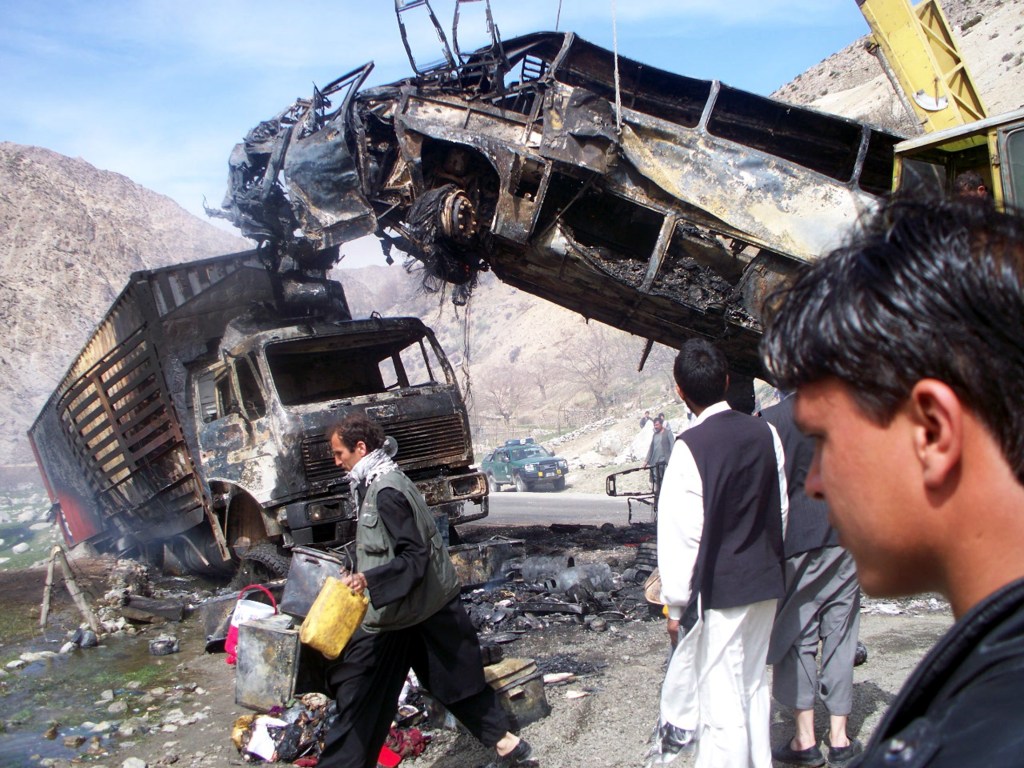


 Pakistan Prime Minister Shehbaz Sharif (left) and Indian Prime Minister Narendra Modi IMAGE/PPI/AFP/
Pakistan Prime Minister Shehbaz Sharif (left) and Indian Prime Minister Narendra Modi IMAGE/PPI/AFP/ Indian actor Harshvardhan Rane and Pakistani actress Mawra Hocane in Indian film poster of Sanam Teri Kasam IMAGE/BrandSynario/
Indian actor Harshvardhan Rane and Pakistani actress Mawra Hocane in Indian film poster of Sanam Teri Kasam IMAGE/BrandSynario/ In an Orwellian move, Pakistani actress Mawra Hocane was removed from the film poster of Sanam Teri Kasam IMAGE/Hindustan Times/
In an Orwellian move, Pakistani actress Mawra Hocane was removed from the film poster of Sanam Teri Kasam IMAGE/Hindustan Times/



